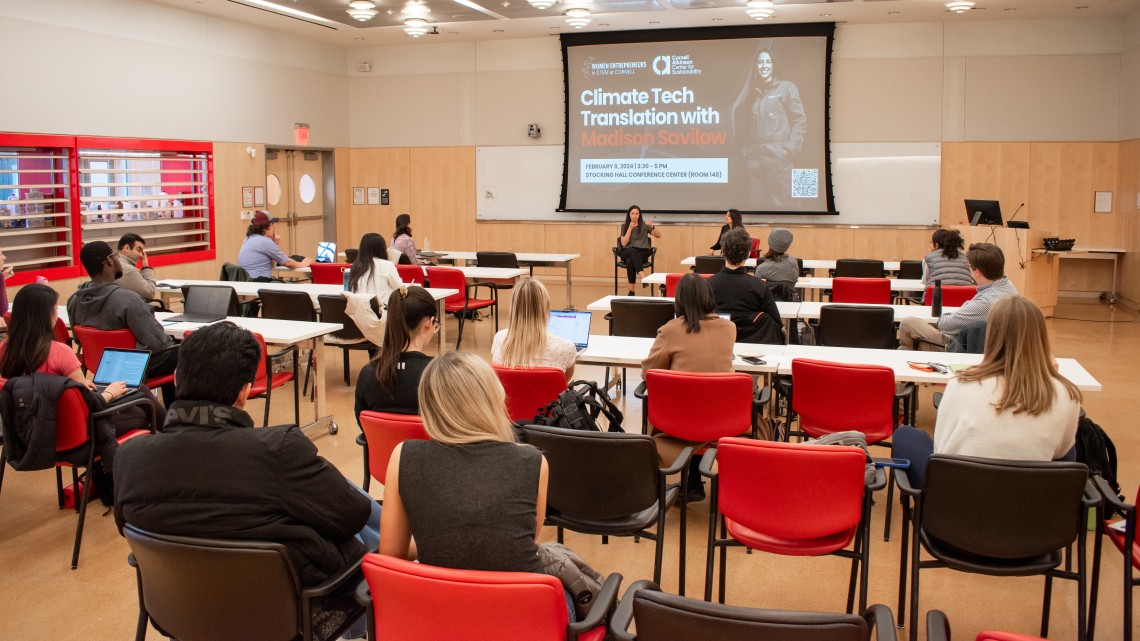
News directly from Cornell's colleges and centers
Climate entrepreneur shares insights with Cornell innovators
By Bridget Hagen
For innovators looking to make an impact with their climate technology research, entrepreneurship is a powerful tool. Climate tech startups like the carbon utilization company Carbon Upcycling advance climate solutions while creating jobs, stimulating the economy and improving industries.
At an event this month co-hosted by W.E. Cornell and the Cornell Atkinson Center for Sustainability, Madison Savilow, Chief of Staff at Carbon Upcycling, shared her insights on this burgeoning industry in a fireside chat with Andrea Ippolito ’06, M.Eng. ’07, Director of W.E. Cornell and founder of SimpliFed.
Given the breadth of her experience, Savilow offered the following advice for aspiring climate tech entrepreneurs:
- Anchor your business in solving a problem: “We talked with clients and tried to figure out what they were actually needing from a solution, and then we tailored our technology to be that solution for them.”
- Be resourceful and adaptive: “The ability to be open-minded and wanting to seek new skills and try new things, I think for us, that's an attribute that everyone in the core team had.”
- Take advantage of non-dilutive grant funding: “That made our projects possible. We were able to do a 10 million times scale up in production capacity in eight years because of grant funding, so it’s an incredibly powerful tool to use.”
- Make sure you have mission alignment with your investors: “You have to be careful of the ones that they believe in you, but they're investing in you for the image or for the optics of investing in you. There’s ways to negotiate to make sure that you are in line with your investors prior to actually doing the investment.”
- Focus your value proposition on product quality rather than sustainability alone: “For us, it’s being able to solve the business problem for these companies first, rather than talking about sustainability. Carbon utilization is actually just the mechanism we use to get our high-performing products; most of our greenhouse gas reduction comes from cement abatement rather than the carbon utilization.”
Read the full story in the Entrepreneurship at Cornell newsfeed.
Media Contact
Get Cornell news delivered right to your inbox.
Subscribe
